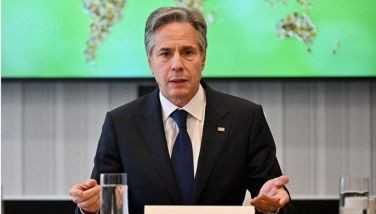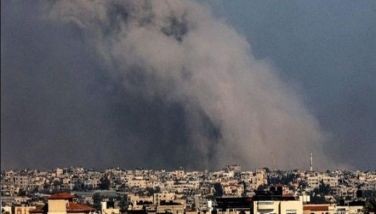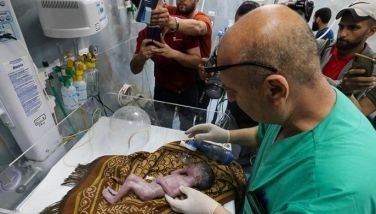Croatia responds to migrant pressure with reception center
OPATOVAC — Croatia set up a migrant reception center in the eastern village of Opatovac on yesterday, in hopes of injecting order into the unrelenting chaos that has gripped the tiny Balkan country overwhelmed by thousands seeking sanctuary in Europe.
About 27,000 people fleeing conflict and poverty in the Middle East, Africa and Asia have entered this nation of 4.2 million since Hungary shut its border with Serbia on Sept. 15. That closure stymied many migrants, who found their way blocked as governments bickered over who should take responsibility for them.
Stung by criticism that his country had done little to help, Croatian Interior Minister Ranko Ostojic visited the camp and boarded a bus full of asylum-seekers. In a rather folksy tone, he introduced himself by his first name and told the group they had nothing to fear.
"You will be here for short time in the camp to take refreshments, foods, what you need and then you will be transported to Europe," he said. "Please follow instructions of the police. Everything will be OK. Thank you."
Everywhere along the borders there are people walking. Amid the crowd of migrants at the train station in Tovarnik was a fluffy puppy carried all the way from Syria. Rose, a blue-eyed husky, whimpered inside her carrier.
"This is my friend's dog," Saffa Hussein said, adding that she had "joined us on the trip to Europe."
Rose, Hussein and a group of friends have already traveled more than 2,900 kilometers (1,800 miles). They want to go another 800 and start a new life in Germany.
But everywhere there are barriers in their way. At the new migrant center, police erected a metal fence, dividing the migrants from the media. Exhausted asylum-seekers hung their washing on a fence as they recovered from many days spent walking from border to border, hoping to go further north to Germany or Scandinavia.
The new center is expected to register the asylum-seekers and then arrange for transport onward. But some were worried, even though they've been promised they will eventually be sent to Hungary or Slovenia.
"Now we're waiting for their decision," said Salakh Arbash, 18, from Syria. "We don't know what will happen."
Croatia's move is only a small reflection of the intense pressure countries in southeastern Europe have felt as the influx continues.
The Hungarian government has warned migrants not to enter the country illegally, saying it is a crime punishable by imprisonment.
In a full-page advertisement in Lebanon's leading An-Nahar daily, the government said "the strongest possible action is taken" against people who attempt to enter Hungary illegally.
In another reflection of Europe's concerns, Poland's former president, Lech Walesa, said refugees must be ready to respect the rules and religion in predominantly Catholic Poland if they are to be accepted.
The Solidarity founder said that rules for admission are needed, amid fears that over time religious and social problems will emerge.
"If someone agrees to the rules, he is admitted; if not, that's his choice," he said.
The European Union wants Poland and other member states to accept asylum-seekers, but is squabbling over proposals for EU nations to share 120,000 refugees. Some have expressed concern about social cohesion, since it is the first time so many people have come from beyond Europe's shores.
Ahead of Wednesday's summit of EU leaders, the foreign ministers of the Czech Republic, Hungary, Poland and Slovakia, which have all opposed the migrant quotas, met yesterday in Prague with Luxembourg Foreign Minister Jean Asselborn, whose country holds the EU's rotating presidency.
European Parliament President Martin Schulz said he fears Wednesday's EU summit to resolve disagreements over migrants will instead end in discord.
He said the European council must raise money for Jordan, Lebanon and Turkey because "there's no money anymore to help people" in refugee camps in those nations.
International donors promised 7 billion euros ($7.9 billion) to help Syrian refugees but have only provided 2.5 billion.
The United Nations estimates that 80 percent of the people entering Europe through the Balkans are from Syria, Afghanistan and Iraq. The other 20 percent are from places including Pakistan, Bangladesh, Burundi and sub-Saharan Africa, according to Babar Baloch, a Budapest-based spokesman for the UN refugee agency.
- Latest
- Trending































